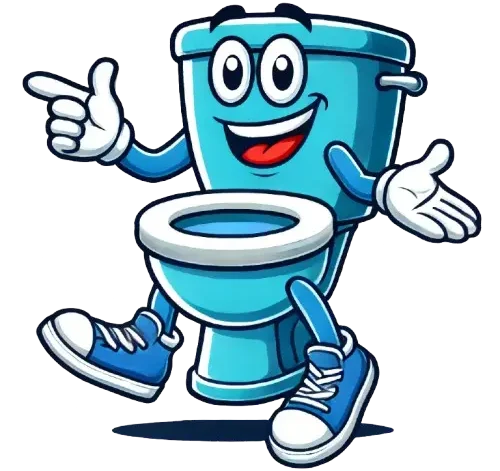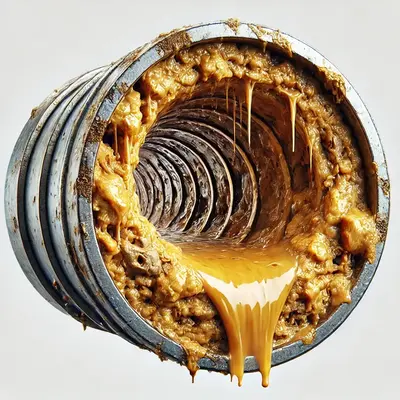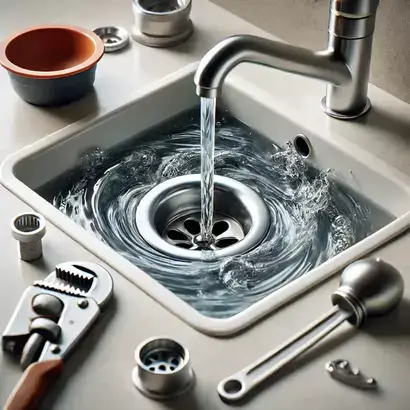What does pouring grease down a drain do?
At Schleman Plumbing, we frequently help Tampa Bay homeowners dealing with drain problems caused by grease disposal. Understanding what happens when grease enters your plumbing system is crucial for maintaining your home’s plumbing health. This article explains the science behind grease clogs and provides expert solutions for addressing accidental grease disposal.
What Happens When Grease Goes Down Your Drain?
When hot grease enters your drain, it might seem harmless as it flows easily. However, a problematic chain of events begins almost immediately:
- Cooling Process: As hot grease moves through your pipes, it begins cooling rapidly. The temperature change causes the liquid grease to solidify, creating a sticky residue on pipe walls.
- Accumulation: This solidified grease begins catching other debris flowing through your pipes, including food particles, soap scum, and mineral deposits. Over time, this builds up like cholesterol in arteries.
- Restriction: As the buildup continues, your pipes’ diameter effectively shrinks, reducing water flow and increasing the likelihood of complete blockages.
- System Impact: The problem isn’t limited to your kitchen sink. Grease can travel through your plumbing system, potentially affecting multiple drains and even causing sewer line problems.

Emergency Steps: Grease Down Drain Accidents
If you’ve accidentally poured grease down your drain, take these immediate actions:
- Hot Water Flush: Immediately run very hot water for at least 5 minutes to help move the grease through your pipes before it solidifies.
- Natural Cleaners: Pour 1 cup of baking soda followed by 1 cup of vinegar down the drain. Wait 15 minutes, then flush with hot water.
- Monitor Drainage: Watch for signs of slow drainage over the next few days, which could indicate developing blockage.
Preventing Grease Drain Clogs: Maintenance Tips
Prevent future grease-related plumbing issues with these professional tips:
- Proper Disposal: Collect cooled grease in a heat-safe container and dispose of it in the trash. The EPA provides guidelines for proper grease disposal.
- Regular Maintenance: Schedule professional drain cleaning services at least annually. Visit our contact page to book maintenance.
- Kitchen Habits: Wipe greasy pans with paper towels before washing. Install and maintain a quality drain strainer.
- Bio-enzymatic Cleaners: Use monthly treatments designed to break down grease naturally. The NSF International provides information about effective cleaning products.
Warning Signs of Grease Buildup
Watch for these indicators that grease is affecting your plumbing:
- Gurgling sounds from drains
- Multiple slow-draining sinks
- Unpleasant odors from drains
- Water backing up in multiple fixtures
- Frequent drain clogs despite regular cleaning
Professional Solutions
When grease buildup becomes severe, professional intervention is necessary. Our team at Schleman Plumbing offers several solutions:
- Hydro Jetting: High-pressure water cleaning that removes even stubborn grease buildup
- Video Inspection: Camera technology to locate and assess grease blockages
- Chemical Treatments: Professional-grade solutions for breaking down accumulated grease
- Preventive Maintenance: Scheduled cleanings to prevent future buildups
Expert Plumbing Care in Tampa Bay
If you’re experiencing drain issues or want to prevent future problems, contact Schleman Plumbing. Our experienced team provides comprehensive plumbing services throughout Tampa Bay, from emergency drain clearing to preventive maintenance programs. Check out our DIY guides for more helpful plumbing tips and maintenance advice.


